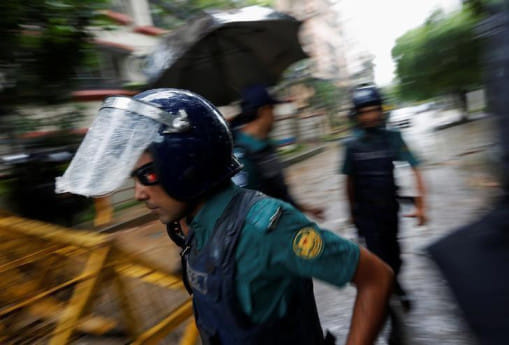Reform commission suggests modern tech core for police force

The Bangladesh Police Reform Commission, in its January 2025 report, has outlined a series of measures aimed at modernising the country's law enforcement framework.
While the report addresses longstanding concerns such as corruption, inefficiency, and public mistrust, it also places a significant emphasis on technological advancements as a means to improve policing capabilities. The commission has made various proposals on how to make Bangladesh Police more tech empowered.
Among the key recommendations is the formation of an 'ICT and Tech Core', a specialised division aimed at enhancing the police force's technological capabilities.
Future tech policing
The commission also envisions broader reforms through modern policing technologies, which could significantly enhance crime prevention, personal security, police mobility, public engagement, and investigative efficiency. It highlights the potential role of advanced digital forensics, DNA analysis, biometric identification, AI-driven crime detection, and cybersecurity measures. By shifting away from traditional confession-based investigations, the use of scientific and data-driven techniques could improve the speed and accuracy of criminal identification and case resolution.
To facilitate this shift, the report proposes the formation of an 'ICT and Tech Core' within the police force.
With over 214,000 personnel spread across 20 specialised agencies, 41 training institutions, and multiple police hospitals and units, the commission argues that the establishment of a dedicated technology division is critical. This new core would be responsible for the acquisition, deployment, and maintenance of digital tools while also ensuring the cybersecurity of police operations. The ICT and Tech Core would function as a career service, with officers trained in digital security, forensic analysis, AI-driven crime detection, and software development.
Within this new division, the commission proposes the creation of four specialised units. The 'Cyber Threat/Crime Prevention Unit' would focus on digital security, using ethical hacking tools. Moreover, this unit will be equipped with the knowledge of big data analytical tools, AI, and fake news detection tools or softwares for academic development and specialised skills.
A 'Digital Forensic Unit' would handle the extraction and analysis of electronic evidence from devices, ensuring stronger legal proceedings against cyber criminals.
A 'Software Development and Maintenance Unit' would work towards reducing dependency on external vendors. According to the report, software purchased through vendors come at a very high price. Besides, it is unsafe to maintain these softwares through vendors. Therefore, if the software is developed and maintained by ICT manpower, it will save money as well as ensure data security. If software has to be purchased in some cases, then it will have to be purchased with the overall cooperation of this unit, states the report.
A 'Hardware and Network Monitoring Unit' would oversee IT infrastructure to enhance security and cost efficiency.
To support this transformation, the commission recommends the establishment of the proposed Centre for Police Research and Development (CPRD). The report also mentions that Police Staff College and the Police Academy may initially collaborate in manpower and necessary equipment for research and development. However, the long term establishment for an independent facility could be subject to budget availability from the government.
One of the notable proposals in the report is the potential introduction of 'Police bots', or humanoid robots, into law enforcement activities. The commission has suggested that these bots could initially be deployed on an experimental basis for bomb disposal.

 For all latest news, follow The Daily Star's Google News channel.
For all latest news, follow The Daily Star's Google News channel.
Comments